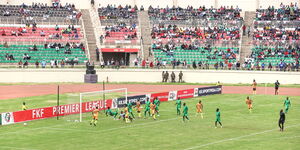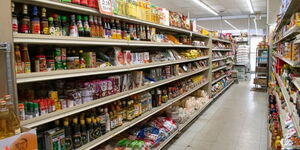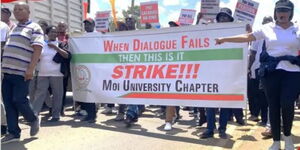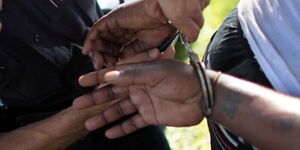Harvesting rainwater in Nairobi is likely to land you in trouble as it would be a blatant violation of existing by-laws that prohibit the practice.
The by-law that dates back to colonial times barrs harvesting of rainwater in commercial buildings.
Reports indicate that the law was enacted during the colonial times as a mitigation against the risk of harvesting contaminated water from the then-popular asbestos roofing.
[caption caption="City residents using a makeshift bridge"] [/caption]
[/caption]
Equally, discharging water from one’s premises is illegal in addition to washing your gate or car within your premises.
Washing, repairing or dismantling of vehicles in residential areas - except in cases of emergency is also punishable in Nairobi.
Although fireproof, asbestos is considered a health hazard especially when the fiber is inhaled and this may have informed the formulation of the law.
There have been concerns over the dwindling water levels at Ndakaini Dam which supplies 80 percent of water consumed in Nairobi.
The frequent floods have paralyzed transport in some parts of the city with reported cases of people drowning.
Different stakeholders have called out to the government and relevant authorities to engage in measures to harness the flood waters for the benefit of the residents.
[caption caption="People wading through a flooded road"] [/caption]
[/caption]
City lawyer Donald Kipkorir on Tuesday questioned how the floods are being witnessed everywhere "from Mandera to Homa Bay... Water is all over.... (yet) miraculously, the water is avoiding our dams."












